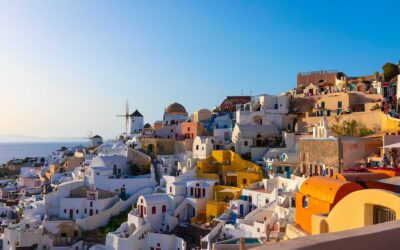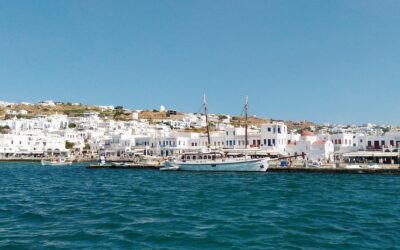
Introduction
Greece, with its stunning landscapes, rich history, and vibrant culture, has long been a beloved destination for travelers. From the sun-kissed shores of the Aegean to the breathtaking mountains of Crete, Greece offers a unique blend of natural beauty and historical significance. However, the increasing influx of tourists has raised concerns about environmental degradation and the preservation of local cultures. Sustainable tourism is emerging as a necessary approach to maintain Greece’s allure while protecting its resources for future generations.
Understanding Sustainable Tourism
Sustainable tourism refers to responsible travel practices that prioritize the preservation of the environment, culture, and economy of a destination. It seeks to minimize the negative impacts of tourism, such as pollution, resource depletion, and cultural homogenization, while maximizing the benefits for local communities. In Greece, sustainable tourism focuses on balancing the needs of visitors with the preservation of the country’s rich natural and cultural heritage.
The Importance of Sustainable Practices in Greece
Environmental Conservation
The Greek landscape is incredibly diverse, encompassing everything from pristine beaches and lush forests to mountainous terrains. However, this beauty is at risk from over-tourism. Sustainable tourism encourages eco-friendly practices such as waste reduction, efficient water use, and the promotion of renewable energy sources. Initiatives such as beach clean-up programs and the protection of marine life in areas like the Zakynthos turtle nesting sites are crucial in preserving these ecosystems.
Cultural Preservation
Greece’s cultural heritage is one of its most significant assets. Sustainable tourism emphasizes the importance of preserving traditional customs, local crafts, and culinary practices. Engaging in authentic experiences, such as participating in local festivals or workshops led by artisans, allows travelers to appreciate and support the local culture. This not only enriches the visitor experience but also strengthens community bonds and traditions.
Economic Benefits
Sustainable tourism also aims to provide economic benefits to local communities. By supporting local businesses—such as family-run accommodations, restaurants, and guided tours—tourists can contribute directly to the economy. This approach fosters job creation and helps ensure that the benefits of tourism extend beyond large corporations, promoting a more equitable distribution of wealth.
Successful Sustainable Initiatives in Greece
Ecotourism and Nature Reserves
Greece has made significant strides in developing ecotourism initiatives. Regions like the Vikos-Aoos National Park and the Zagori villages offer opportunities for hiking, bird watching, and exploring unique ecosystems. These areas are managed with sustainable practices in mind, ensuring that tourism does not compromise their ecological integrity.
Responsible Tour Operators
Many tour operators in Greece are now committed to sustainable practices. Companies like "Greece Sustainable" offer tours that prioritize environmental stewardship, local engagement, and educational experiences. They provide travelers with opportunities to minimize their footprints while discovering the ancient sites and natural wonders of Greece.
Community-Based Tourism
Community-based tourism initiatives empower local residents by involving them in the tourism process. For example, the "Experience Greece" program connects travelers with host families, allowing for immersive cultural exchanges. Visitors get to enjoy homemade meals and traditional practices, while locals gain an income and share their heritage with the world.
Challenges Ahead
Despite the positive strides, challenges remain. The COVID-19 pandemic brought a temporary reduction in tourist numbers, providing a glimpse of a healthier environment. However, the pressure to return to pre-pandemic tourism levels poses risks. Increased awareness, strong policies, and community engagement are essential for addressing these challenges effectively.
Conclusion
As Greece navigates the path towards sustainable tourism, it holds the potential to preserve its natural beauty and cultural heritage for future generations. By prioritizing eco-friendly practices, supporting local economies, and promoting cultural resilience, Greece can continue to be a paradise that captivates travelers while safeguarding its treasures. The journey toward sustainability will require collaboration among governments, businesses, and communities, but the reward is a thriving, vibrant Greece for years to come.










